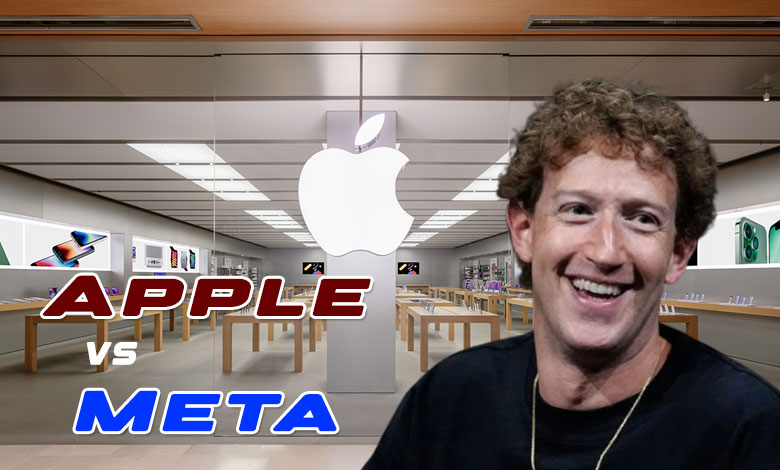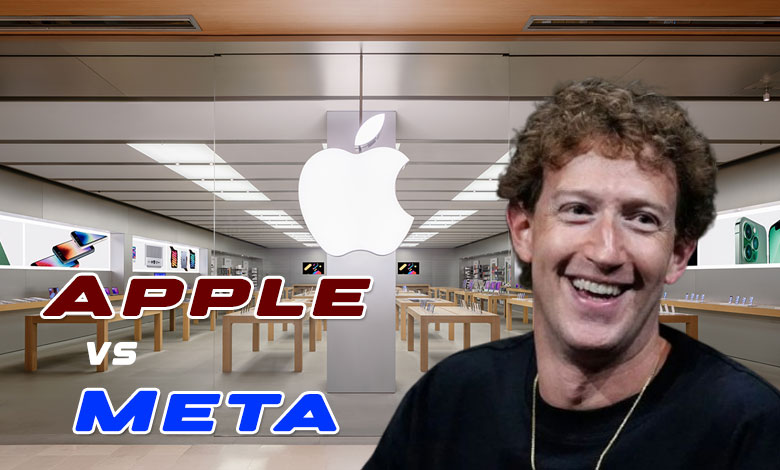Zuckerberg Criticizes Apple for Relying on iPhone for 20 Years: What’s Really Behind the Ongoing Rivalry?
Mark Zuckerberg takes a shot at Apple for depending on the iPhone for two decades. Discover the real reasons behind the ongoing rivalry between these tech giants and their clash over innovation, privacy, and business models.

In a recent podcast with YouTuber Joe Rogan, Meta CEO Mark Zuckerberg took aim at Apple, criticizing the tech giant for relying too heavily on the iPhone’s long-standing success. He accused Apple of lacking innovation and merely “milking” the iPhone for the past two decades, suggesting the company has stagnated in terms of groundbreaking new products.
Zuckerberg expressed frustration over Apple’s failure to introduce any truly revolutionary technology in recent years, pointing to the iPhone as an example of Apple’s reliance on an aging product. He suggested that Apple’s focus on incremental improvements, rather than groundbreaking new developments, has left the company stagnant in comparison to competitors like Meta, which is pushing the envelope in areas such as the metaverse and virtual reality.
Table of Contents
Zuckerberg Slams Apple’s Privacy Policies and App Store Rules
The ongoing feud between Zuckerberg and Apple largely stems from the companies’ contrasting approaches to user privacy and business models. Zuckerberg’s latest comments were a direct attack on Apple’s policies around the App Store, where he claimed Apple uses “random rules” that limit Meta’s profitability. He further argued that relaxing these policies could lead to a 50 percent increase in Meta’s profits.
A key area of contention has been Apple’s stance on user privacy. Since the launch of Apple’s App Tracking Transparency feature in 2021, which limits Facebook’s ability to track user data across different apps, Zuckerberg has been vocal about his dissatisfaction. Zuckerberg stated that while Apple frames privacy as a core value, its approach to user security could be improved with better encryption practices.

“It’s insecure because you didn’t build proper security into it. Now you’re using that as an excuse for why only your products can connect easily,” Zuckerberg commented.
Apple’s App Store Policies and 30% Transaction Fee Under Fire
Zuckerberg also took issue with Apple’s 30 percent transaction fee for purchases made in the App Store, which he described as arbitrary and harmful to competition. The fee, he argued, restricts Meta’s ability to maximize profits and forces consumers to spend more on Apple products, such as AirPods.
“So how do they make more money as a company? By squeezing people with this 30 percent developer tax and pushing consumers to buy more add-ons like AirPods,” Zuckerberg said. “They’ve made cool products like AirPods, but they’ve restricted anyone else from making something that integrates with the iPhone in the same way.”

Zuckerberg Critiques Apple’s Vision Pro and Virtual Reality Strategy
In addition to addressing Apple’s business practices, Zuckerberg also took a swipe at Apple’s Vision Pro headset. Despite the hype around the device, reports have suggested that its sales have been underwhelming in the US market. Zuckerberg seemed to acknowledge Apple’s efforts but criticized the initial version of the Vision Pro, suggesting that it had not met expectations.
“The Vision Pro is probably one of Apple’s bigger swings at trying something new in a while,” Zuckerberg acknowledged. “I don’t want to criticize too harshly since we’ve had early versions of products that weren’t great. But the first version of the Vision Pro didn’t hit it out of the park.”
Meanwhile, Meta has continued to develop its own virtual reality products, including the Meta Quest series, with Zuckerberg expressing confidence in the company’s long-term VR strategy.
Ongoing Rivalry Between Meta and Apple
This latest round of criticism is far from the first time Zuckerberg has gone after Apple. Tensions between the two companies escalated in 2021 with the introduction of Apple’s App Tracking Transparency feature. Zuckerberg and other Meta executives argued that the change would hurt small businesses, which rely heavily on personalized advertising.
The rivalry between Meta and Apple has long been rooted in their differing business models—Meta focusing on advertising revenue, primarily through its social media platforms, and Apple taking a more hardware-centric approach, with a strong emphasis on privacy and ecosystem control.
Zuckerberg’s criticisms are likely to continue fueling the ongoing public clashes between the tech giants, particularly as Meta continues to innovate in areas like virtual reality and the metaverse, while Apple focuses on refining its existing products and services.
As the tech world watches, it seems clear that the battle between Meta and Apple will remain a point of contention for the foreseeable future.

